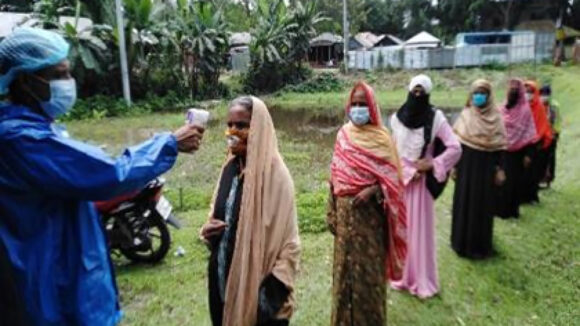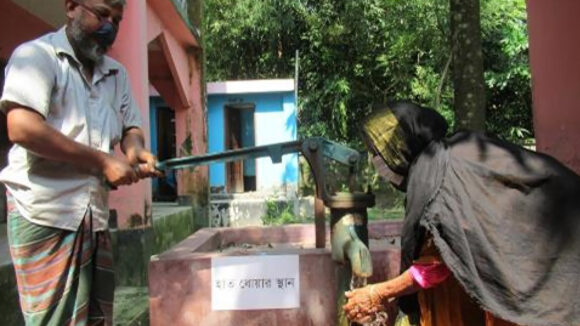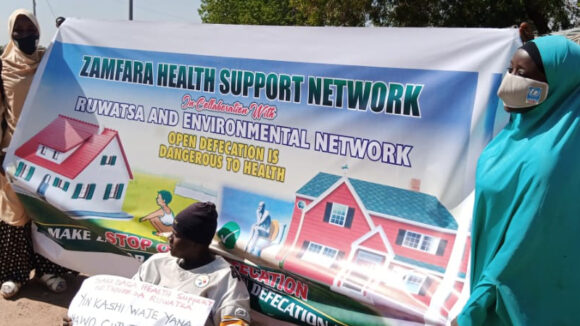November 2020 updates: highlights from around the world
Following rigorous safety measures, we have been able to restart our work fighting disease and saving sight all over the world.

Burkina Faso
COVID-19 has disrupted a lot of our work this year, but by putting safety measures in place we have been able to restart many activities.
To help us continue our neglected tropical disease (NTD) work safely, Sightsavers and partners developed a risk assessment and mitigation action tool known as RAMA. After completing the RAMA process in Burkina Faso, our work to eliminate trachoma was given the green light to continue safely.
As part of the Accelerate programme, health workers were trained to safely conduct surveys identifying trachoma trichiasis (TT), the advanced and potentially blinding stage of trachoma, in the Dano and Diebougou districts. Participants learned how to carry out surveys to minimise the risk of spreading COVID-19, and were provided with additional equipment including masks, visors, gloves and a temperature monitoring tool called a thermoflash.
Following the training, the surveys were successfully completed through the Tropical Data initiative. More from Burkina Faso
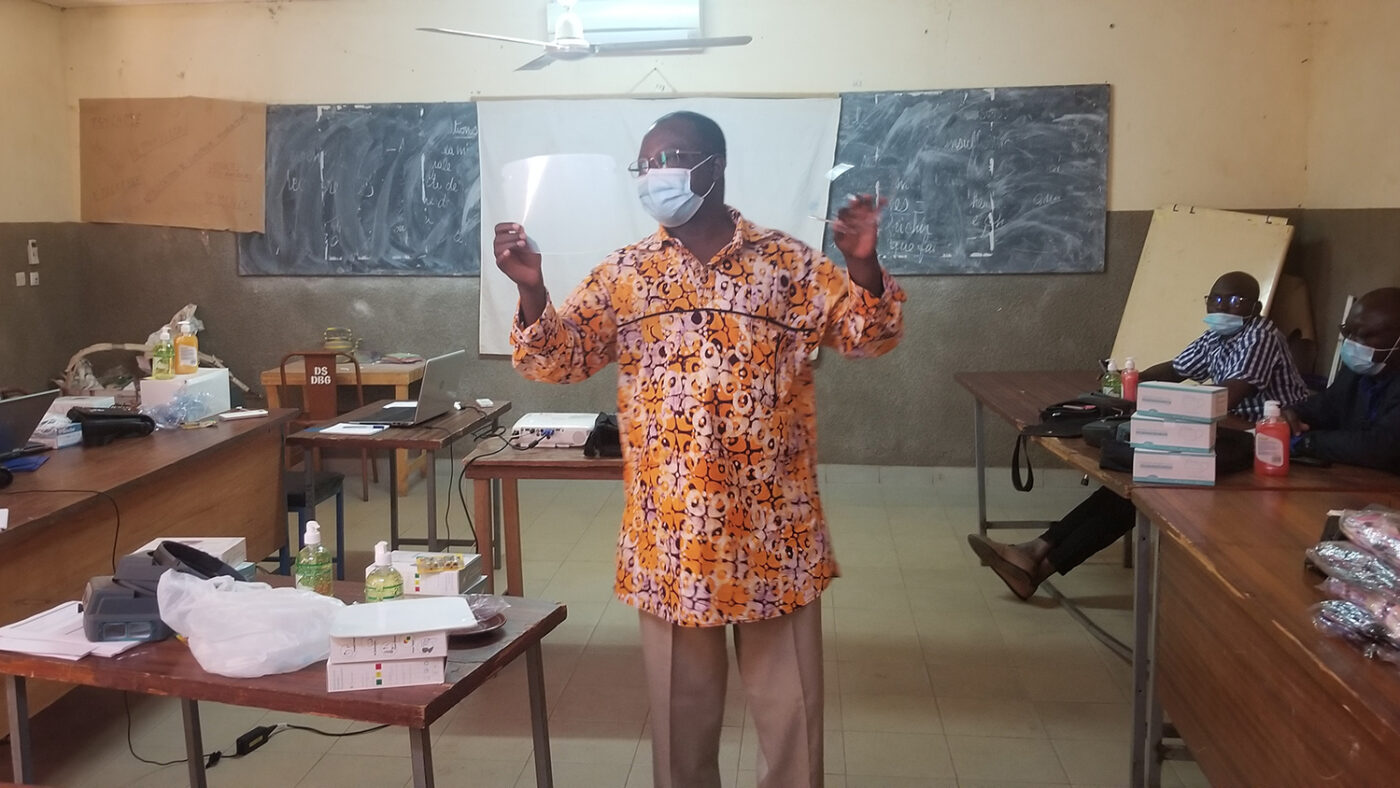
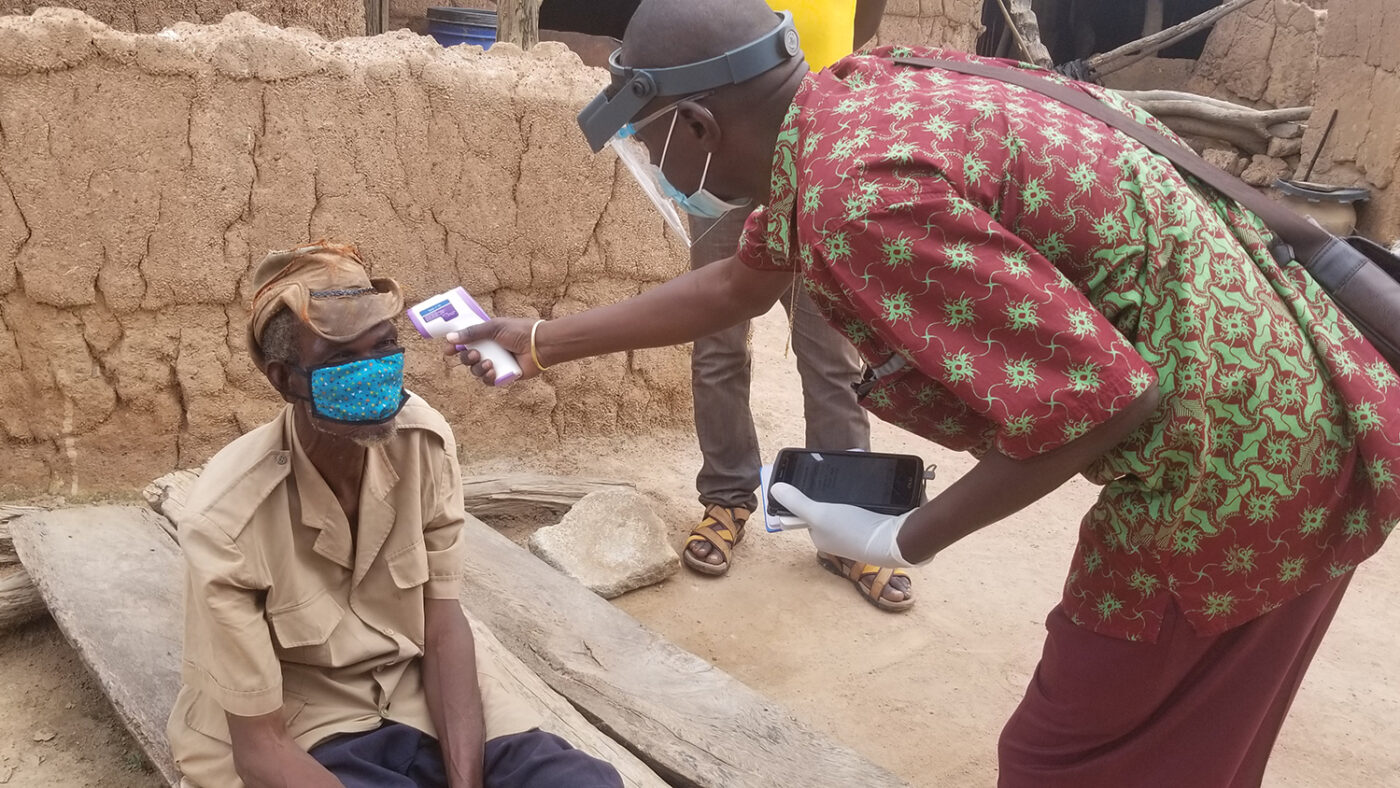
Guinea
Another activity that had to be paused was mass drug administration (MDA), which helps to treat and stop the spread of several neglected tropical diseases.
During an MDA, many people are required to gather in one place to receive medicine, which isn’t possible during a pandemic. To combat this, Sightsavers completed the RAMA process and adjusted the plans for distributing treatments so people didn’t have to gather in large numbers. We were then able to help carry out an MDA for river blindness and lymphatic filariasis in Guinea through the Ascend West and Central Africa programme.
Dr Sakou and Dr Michel are two senior members of the team who are helping to ensure the medicine reaches community members. Not only has the response from local people been very positive, they say that because of COVID-19, the awareness of NTDs has been stronger than ever.
“COVID helped us reach out to parliamentarians, civil society, the media and local representatives,” explains Dr Michel. “Now, as soon as you say NTD, you will find an answer to your question. COVID has helped raise awareness among the population.”
Dr Michel says it was vital to restart activities to keep on track with goals to eliminate the disease. “If measures hadn’t been taken, there would have been far too many activities to deliver at operational level,” he explains. “Now there is greater national coordination. Now national programmes work together to see how activities can be delivered, so this is being improved.”
Dr Sakou adds: “Everyone is willing to do more to make sure we achieve our objectives, and this is really important.” More from Guinea
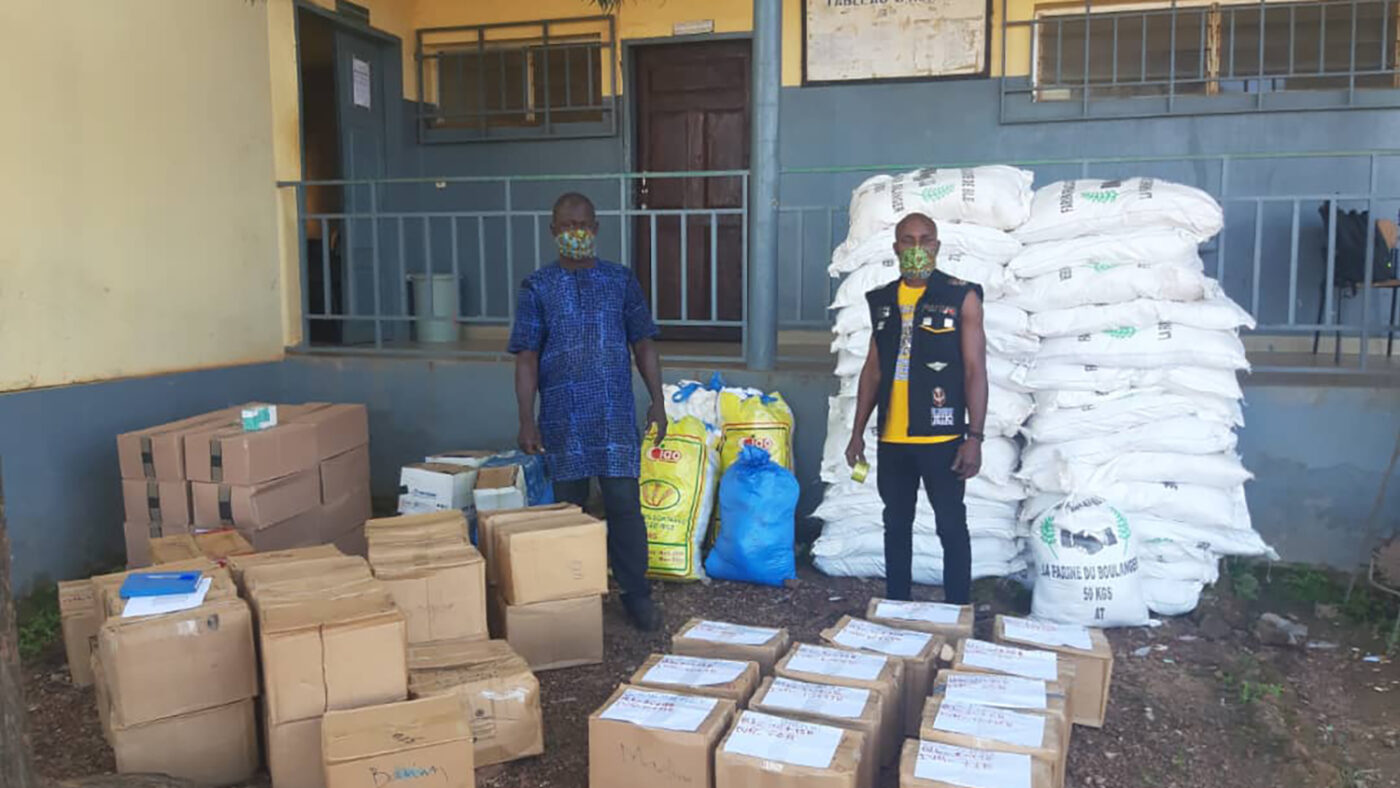
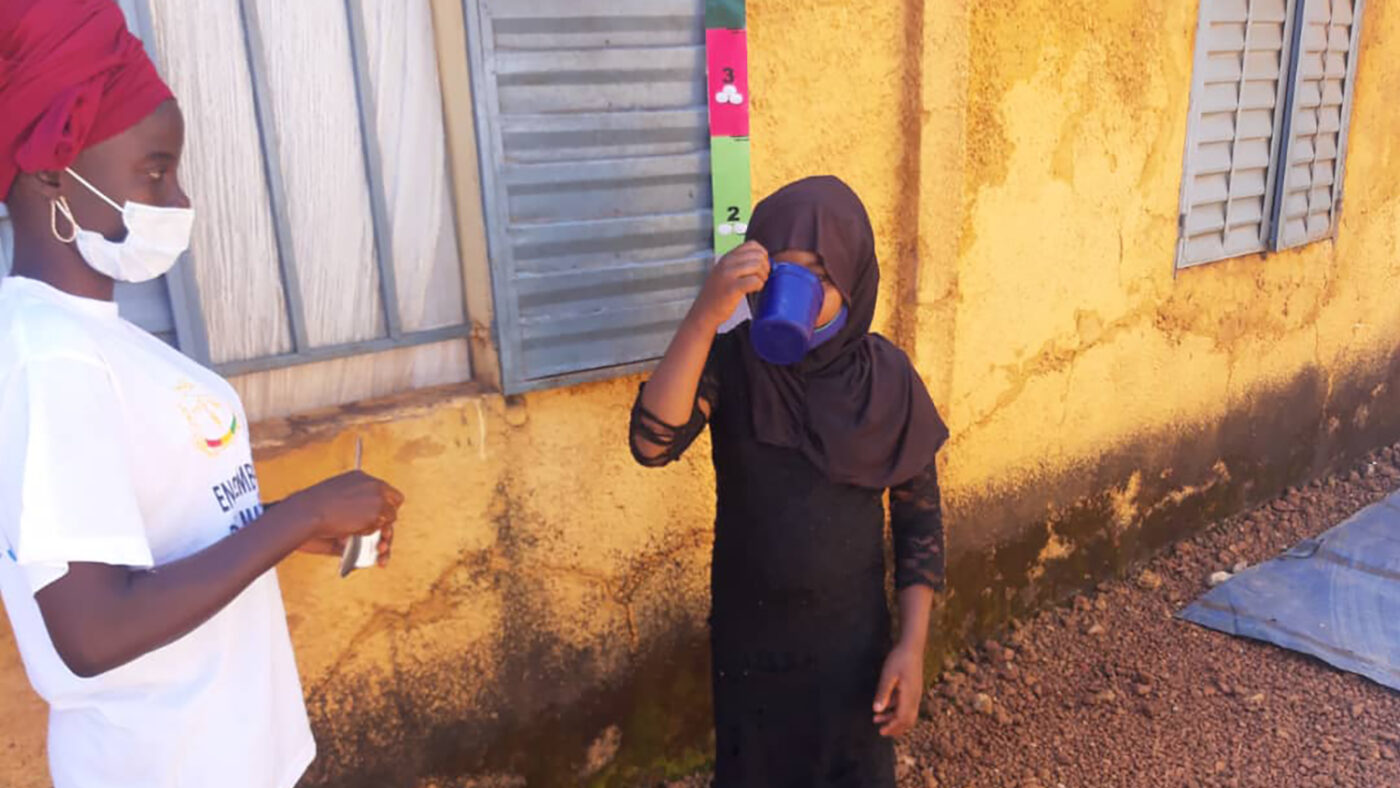
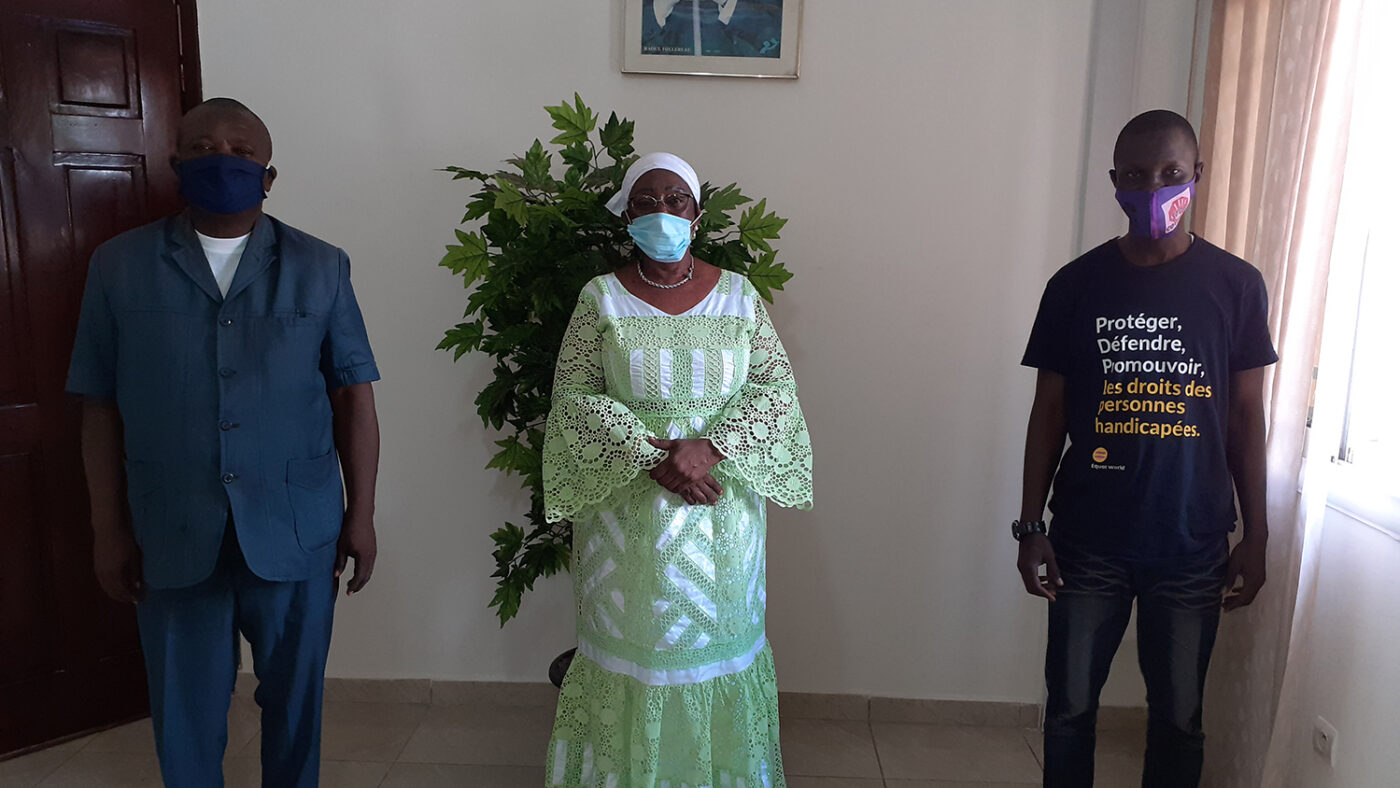
Zambia
As part of the Seeing is Believing project, the team has been working with local districts to ensure eye care is available to marginalised communities in Zambia.
Local women’s groups worked together to encourage women to see qualified medical staff, rather than traditional healers. The women provided eye health messaging via educational songs and sketches, and reports showed that more women attended eye screening as a result. The women also delivered COVID-19 health messages, encouraging people to wash their hands and keep their distance.
Another Seeing is Believing project screened and donated glasses to school children. Watch the video below to find out how important their glasses are to them. More from Zambia
Mozambique
Cataract operations have restarted in Nampula province in Mozambique, thanks to a programme funded by Jersey Overseas Aid Commission.
An outside pop-up camp took place in Moma district, where 137 patients were operated on over two weeks. Rigorous safety measures were in place, including clear signposting, temperature checks and regular disinfection of the vehicles used to transport the patients to the site.
Grandmother Muanacha, who had been waiting 10 months for a cataract operation, is finally able to see again following her surgery. Muanacha, who lives with her daughter, lost her sight in February and wasn’t able to farm her beans and cassava, or see her one-year-old granddaughters. “I have forgotten their faces,” she told us.
Unfortunately, COVID-19 meant the clinic was unable to treat her for a long time, but in November she was finally able to have the operation. To get to the health centre, her son accompanied her on the7km walk, and after the operation she was able to walk unaided. She is happy to be back with her family and can’t wait to start working on the farm again. More from Mozambique
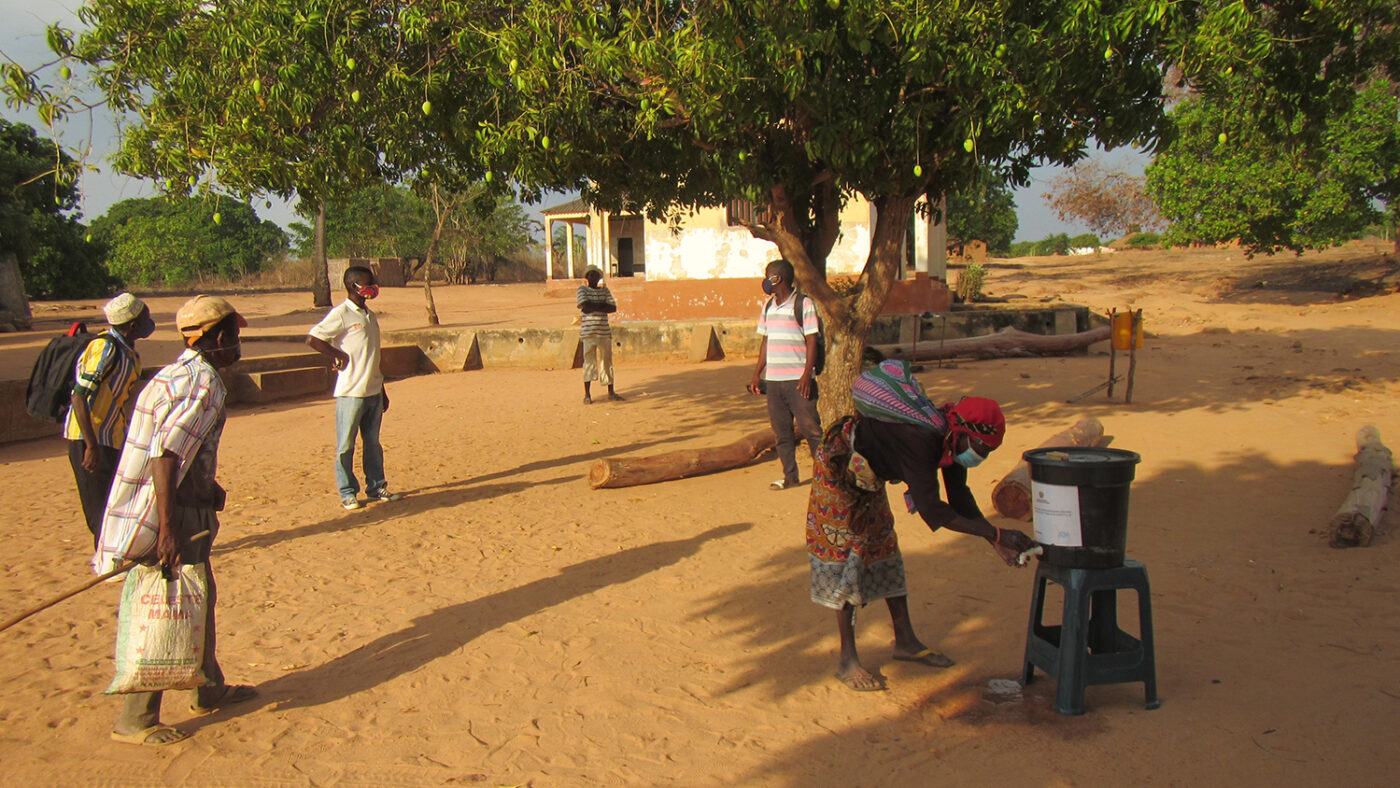
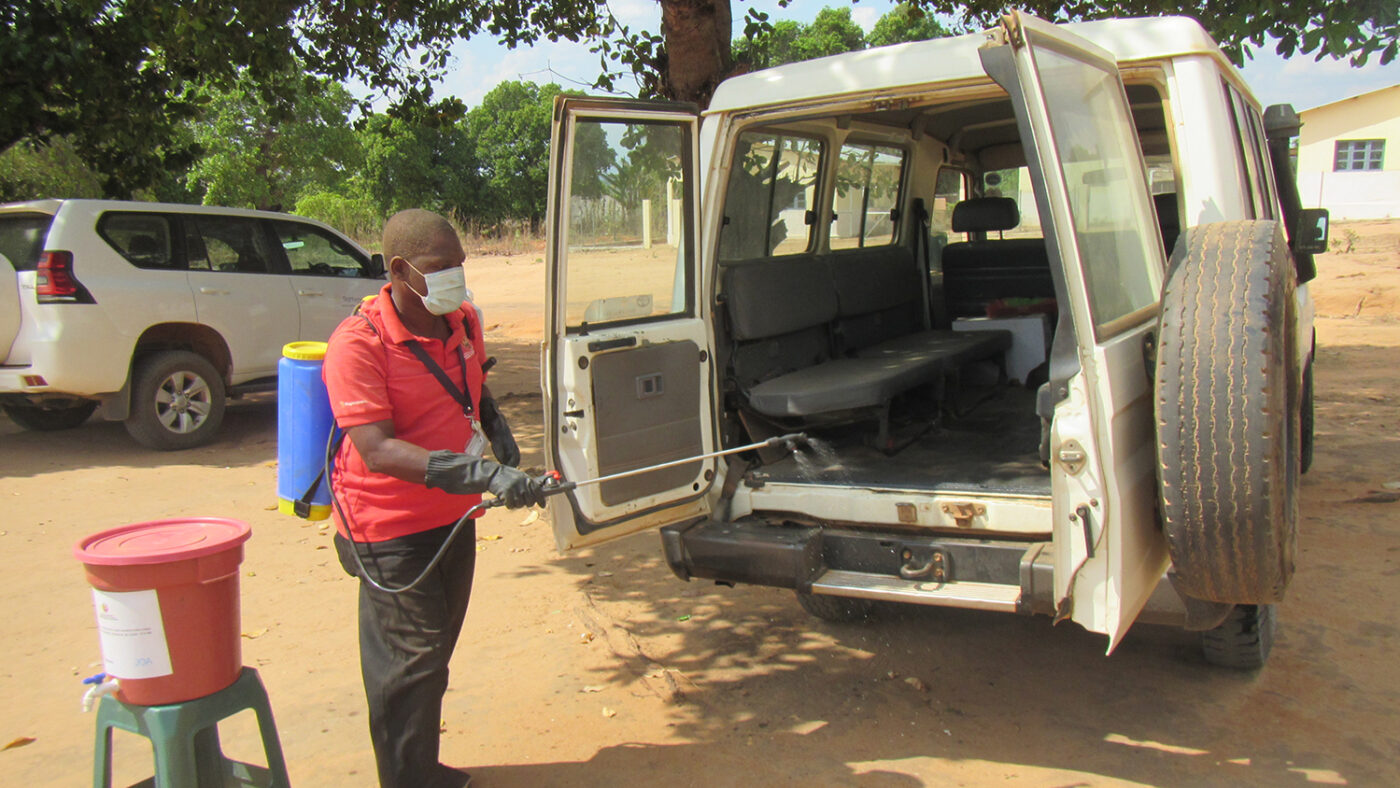
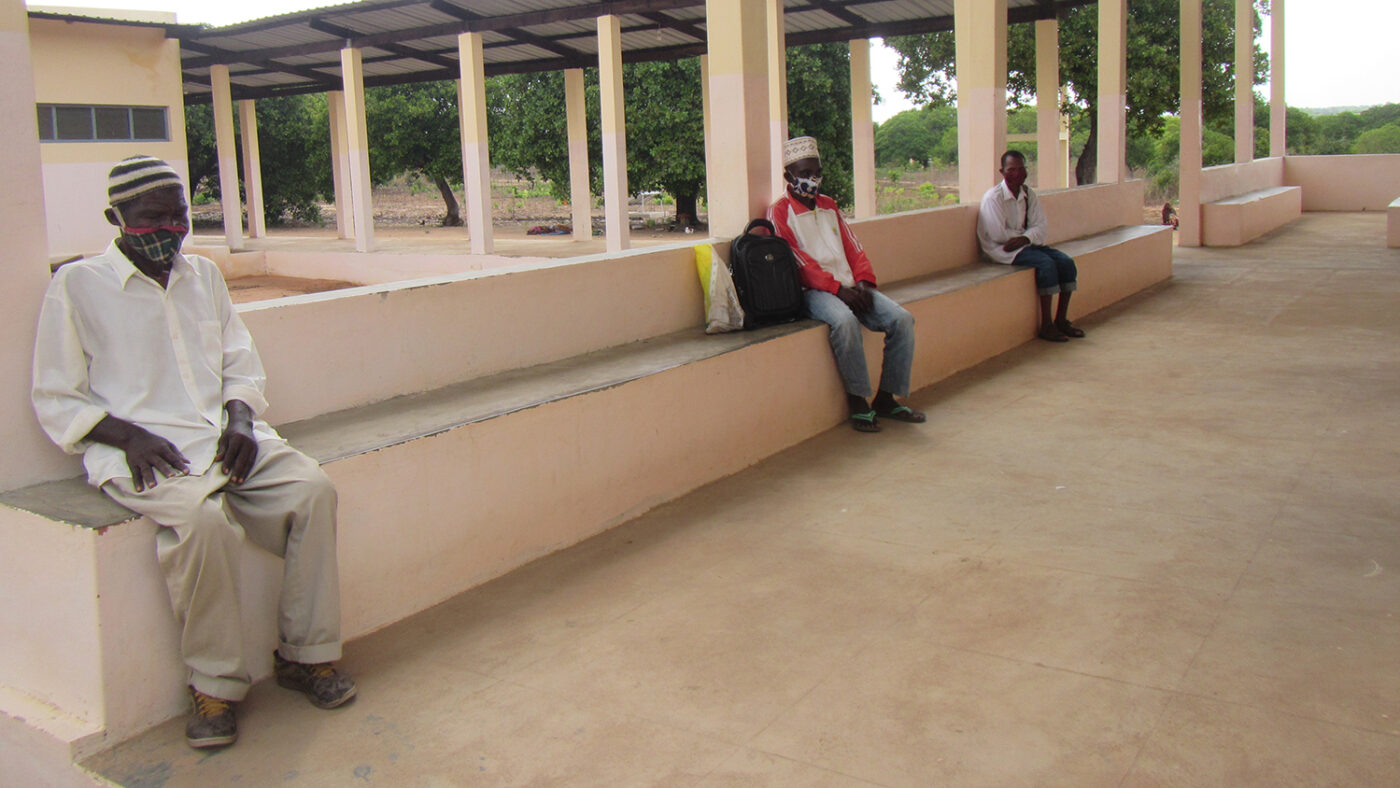
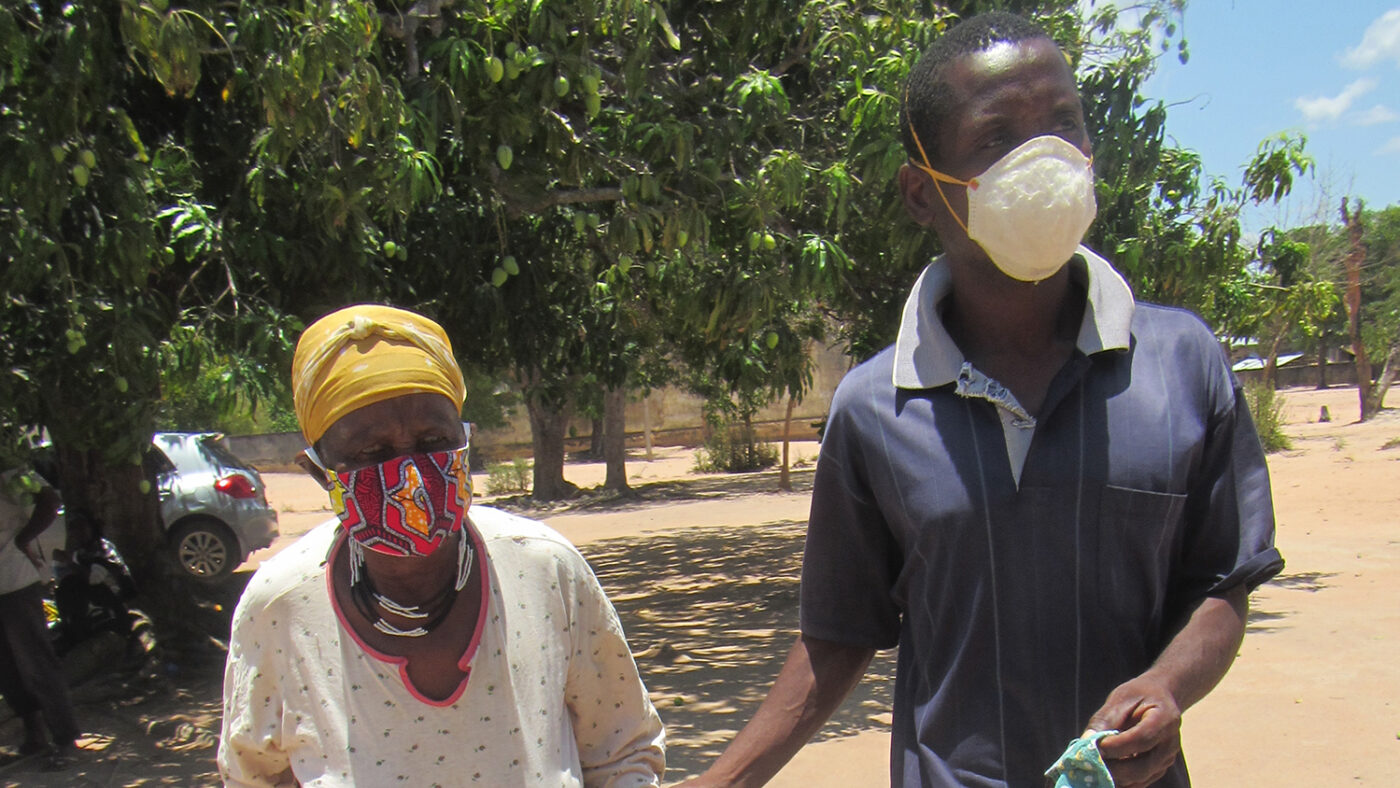
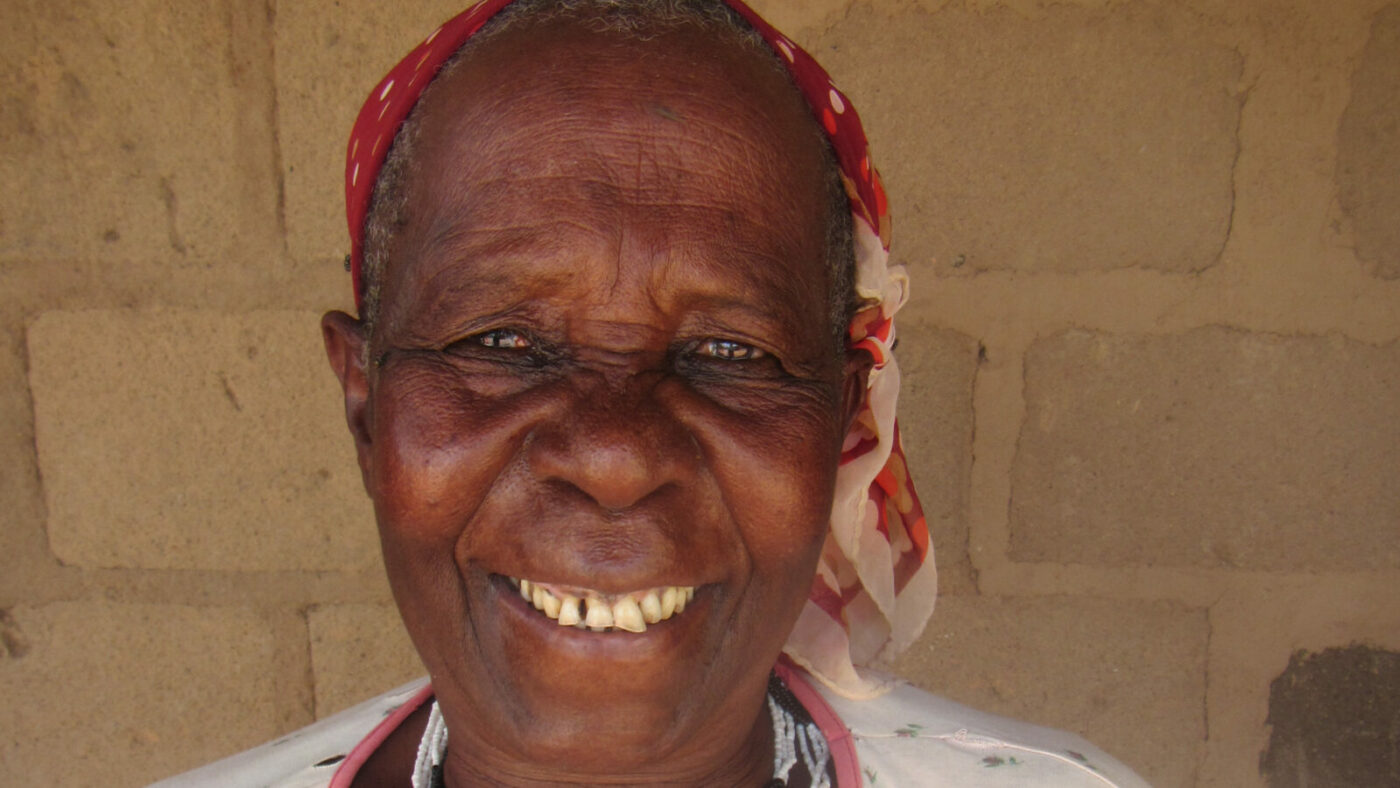
Bangladesh
In October, four Sightsavers hospital partners organised outreach camps to screen people for eye conditions and to spread information about COVID prevention. The camps were particularly aimed at marginalised communities as part of The Right to Health project, funded by the UK government through UK Aid Match.
There were stringent COVID-19 safety measures in place, including handwashing for all incoming patients; temperature checks using infrared thermometer; socially distanced queues; mask-wearing for all patients at the camps and partner hospitals; and all members of the medical team wearing PPE.
All patients eligible for eye operations were transported in separate vehicles and were dropped home after the treatment. A dedicated staff member from the partner hospital was present throughout the process to ensure guidelines were followed. More from Bangladesh
Nigeria
The Zamfara NTD programme, along with local partners, celebrated 2020 World Toilet Day on 19 November.
Highlights of the event included a rally and radio and television phone-in talk programmes focusing on the importance of sanitation and climate change. The celebration also promoted Sightsavers’ work to fight trachoma in some districts. More from Nigeria
Read about our work around the world
Where we workMore stories from the field
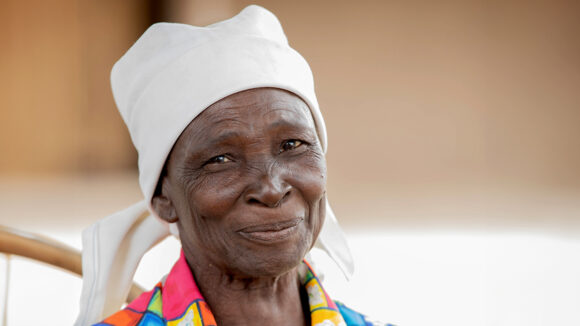
“I’m a living testimony of cataract surgery”
When Angeshita regained her independence after her eye operation, so did her family. They are now able to return to school and work, giving them all hope for the future.
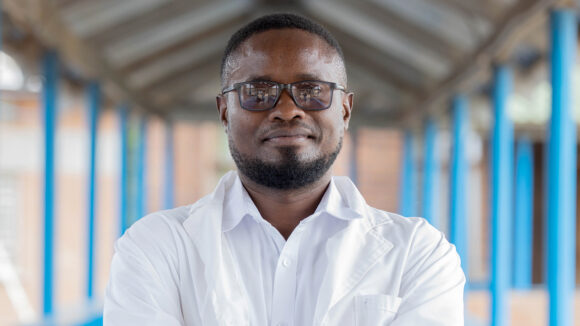
Alinafe cuts the queues
Learn about one man's mission to make a difference in Malawi by training as an eye health specialist.
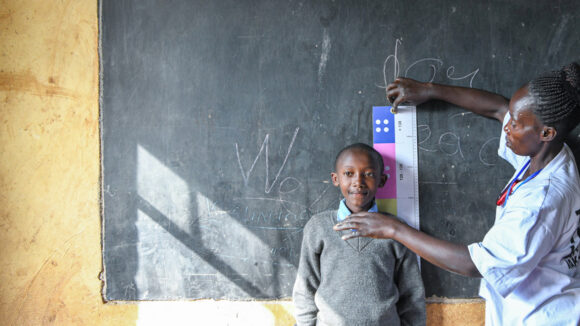
“Our programme has transformed communities”
Now in its sixth year, the Accelerate programme has already delivered 53 million treatments to protect people from trachoma, and managed 91,000 advanced cases of the disease.
